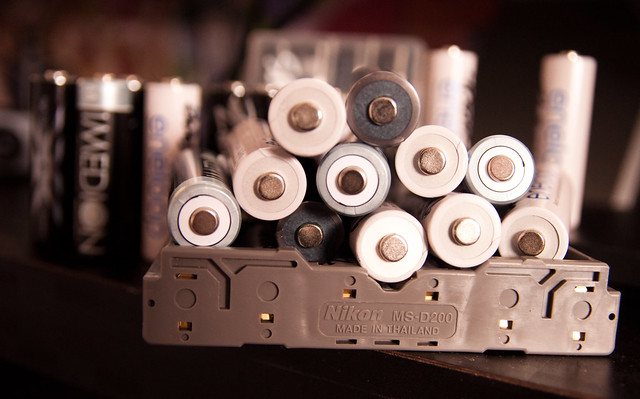Silver Oxide vs Lithium Batteries Usage
Sep 10, 2019 Pageview:20768
Silver oxide batteries and lithium batteries are both the two most popular batteries that have been used. Silver oxide batteries are small button batteries with low capacity. You mostly know silver oxide batteries are button batteries, that you found in electronic devices such as calculator, watches and so forth. Silver oxide batteries are very durable and have high energy to weight ratio. It can also tolerate high current loads.
Meanwhile, lithium ion battery is one of the fastest and growing types of batteries that exist in the market. It is commonly used in most of the rechargeable electronic device. Compared to silver oxide, lithium ion battery does not last that long. However, it has a higher potential for energy density.
Choices of Silver oxide and lithium batteries
There is only two types of silver oxide batteries, one type that uses sodium hydroxide while the other uses potassium hydroxide. Potassium hydroxide batteries are primarily used in LCD watches with backlights, and sodium hydroxide batteries are used primarily in digital watches. Potassium hydroxide batteries tend to be able to operate better at lower temperatures.
There is also a larger version of silver oxide batteries, which are most commonly found in military devices.
Lithium batteries come in much more variety of types. The main difference between the type of lithium batteries is the cathode material. There is generally six types of lithium batteries that exist in the market:
1.Lithium Cobalt Oxide
These types of batteries are mostly found on mobile phones, laptop, and even digital cameras. The major drawback of this type of battery material is the short life span of it, low thermal ability and limited load capabilities. However, they have a quite high amount of energy density, along with their cost and performance.
2.Lithium Manganese Oxide
This type of batteries charged fast and has a high current discharging. They tend to be safer than other types of batteries, especially lithium cobalt oxide batteries. The drawback of it is that it has a limited amount of life span.
3.Lithium Nickel Manganese Cobalt Oxide
This type of battery is made by combining three material, nickel, manganese and cobalt. It is usually used for energy cells or power cells. By combining nickel and manganese, it has combined the high energy that nickel has along with the much more stable manganese.
Compared to other lithium ion batteries, this material is the one that poses the most stable amongst all. It has quite a high specific energy, along with safety. It tends to have a high life span. Not to mention compared to other materials, lithium nickel manganese cobalt oxide is quite cheap to be produced.
4.Lithium Iron Phosphate
This type of battery is perhaps the less stressed than any other lithium ion battery system thus resulting in a much safer battery. Unfortunately, it also does not have a high voltage power and a higher production cost, although they have a higher average life span.
5.Lithium Nickel Cobalt Aluminum Oxide
Lithium nickel cobalt batteries are further development from lithium nickel oxide batteries. By adding aluminum, the chemistry of the battery becomes much more stable.
These types of batteries pack up a higher energy level than other batteries. It’s cost, life span and performance is also much more moderate compared to other batteries.
6.Lithium Titanate
These batteries work very well under high temperatures than any other material that is used for lithium ion batteries. However, the cost of production is quite expensive compared to other material. Other than that, the battery excelled very well in terms of performance, safety and life span.
How to use silver oxide and lithium batteries properly?
Silver oxide battery tends to be stable compared to the other battery types. It does not have a flammability problem. However, because of their low discharge rate, these types of batteries are only found in limited products that do not require high voltage to run.
Lithium ion batteries, on the other hand, require protection circuits in the device that uses these types of battery. There are several care that should be given in the usage of lithium ion batteries such as; keeping the batteries in the room temperature. The battery performs best in a stable temperature between 20 to 25 degrees. For a longer run, it is also better to have it partially discharged rather than fully discharging it. The same principle applies to recharge it.
Does silver oxide last longer than lithium batteries?
Yes, the silver oxide battery lasts longer than lithium iron ones. The reason is simple because it also packs a much lower energy density. Although it has a higher cost compared to lithium ion batteries.
A silver oxide battery on average can last for 3 to 5 years with 24 hours per day usage. This will not happen to the lithium ion batteries. However, the good part is lithium ion batteries also carry a higher level of discharge energy.
Lithium-ion batteries come with different types of material that are used. However, even tho there are certain lithium ion batteries that have a higher shelf life, the key to maintaining it lies on the discharge and recharges power cycle. They do not have a memory effect, which means that the battery does not require you to completely discharge them before recharging.
The key to using both types of battery is dependable on the usage of the device. If the device does not need a high level of energy, you can opt to use silver oxide batteries which tends to last longer.
On the opposite, if the device needs a high level of energy, then you can use a lithium ion battery even tho it will not last as long. Although this is the case with lithium ion batteries, they are also rechargeable which makes it possible to use the same battery for multiple times usage.
- Prev Article: Old LiPo Battery – Common Dispose
- Next Article: Square Lipo Battery – Lipo Battery Types
Leave Message
Hottest Categories
-
Hottest Industry News
-
Latest Industry News











